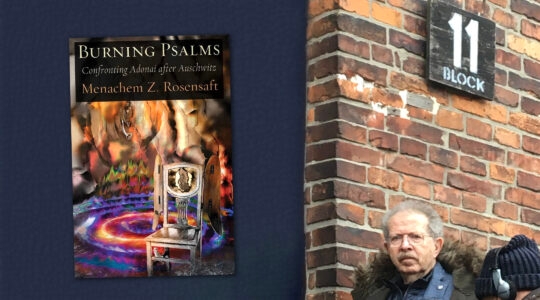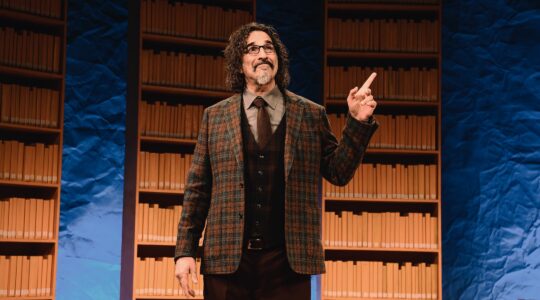With his latest film, “The Last Sentence,” which opens on June 20, the Swedish director Jan Troell revisits the world of his 1994 film “Hamsun,” again focusing on the reaction of the Scandinavian countries to the rise of Nazism in Germany. In a sense, one could say that “The Last Sentence” is the earlier film stood on its head: another biopic centering on a famous writer and the tensions within his personal and political lives. The difference is that Torgny Segerstedt, the protagonist of the new film, was as dedicated an anti-Fascist as Knut Hamsun was a supporter of Hitler. Otherwise, the films are strikingly similar in ways that are not altogether helpful.
Segerstedt was a Swedish journalist, a former theologian-turned-editorialist who staunchly and sardonically defied the Nazis from the moment of their rise to power until their final demise and his own death a week before VE-Day. Like Hamsun, he was more dedicated to his work than to his family or his mistresses, and the portrait that emerges in the film is of a man driven by the dictates of conscience to the exclusion of almost any other characteristics. Like Troell’s Hamsun, his Segerstedt is a profoundly cold man, aloof and detached, particularly from those who love him most. (Perhaps not coincidentally, the actors who portray the two men — Max von Sydow in the earlier film, Jesper Christensen in the new one — bear a marked resemblance to one another.)
Those closest to him are his wife Puste (Ulla Skoog), his Jewish mistress, Maja Forssman (Pernilla August) and her husband, Axel Forssman (Björn Granath), who owns the daily newspaper that Segerstedt edits. This increasingly awkward quadrangle dominates the first half of the film as the focus alternates between the rising Nazi threat and Segerstedt’s stern responses, and the ultra-civilized but strained relationship among the four. The only time that the personal and the political stories intersect is when others menacingly invoke Maja’s Jewishness as the motivation for Torgny’s anti-Nazism. Otherwise we might as well be watching two different movies.
Therein lies one of the problems of the film. Troell never really integrates the two narrative lines except, perhaps, in the ominous moment in which King Olaf rebukes Segerstedt pointedly, “I think we know why you help the Jews.” Although the balancing act of neutrality in which the Swedes are precariously engaged might be compared to Torgny’s juggling of Puste and Maja Troell, the film never really makes the thematic link clear. And quite frankly, in a film that uses WWII newsreel footage as punctuation, that parallel is almost meretricious.
That failure, I think, underlines the film’s central weakness. In his brief international heyday in the early 1970s, Troell turned out a trio of historical films – “The Emigrants,” “The New Land,” “Zandy’s Bride” — that were distinguished chiefly by their rather plodding pictorialism. They were emotionally so muted as to be almost opaque. “The Last Sentence” repeatedly invokes Troell’s fellow Swede, Ingmar Bergman, in its stunningly beautiful black-and-white cinematography (by Troell and frequent collaborator Mischa Gavrjusjov), its procession of ghostly visitations from Segerstedt’s past and the static compositions that tend to reduce moments of drama to tableaus. But Bergman, whatever one thinks of his oeuvre as a whole, is capable of rising to moments of brutal power as his characters twist and turn in the flames of their repressed eroticism. Troell is just repressed, tamped down, smothered by a sort of politeness in which voices are never raised and emotions seldom acknowledged. Consequently, “The Last Sentence” is a melodrama with more music than drama.
“The Last Sentence,” directed by Jan Troell, opens Friday, June 20 at the Lincoln Plaza Cinemas (Broadway and 62nd Street). For information, call (212(757-0359 or go to www.lincolnplazacinema.com.
The New York Jewish Week brings you the stories behind the headlines, keeping you connected to Jewish life in New York. Help sustain the reporting you trust by donating today.




